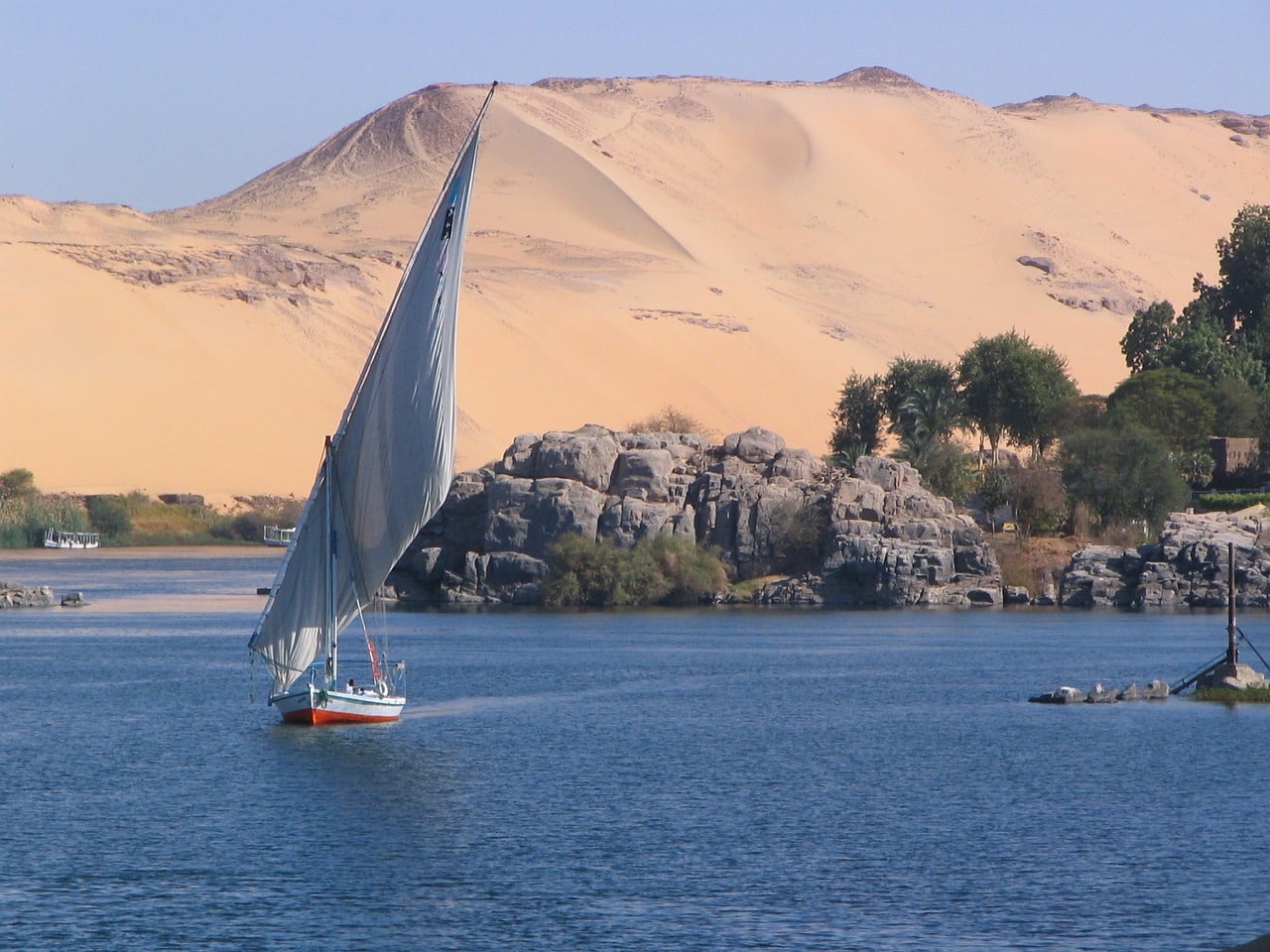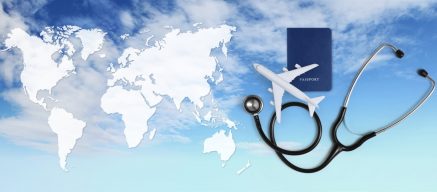
The River Nile passes through 11 countries and at 4,132 miles, is the longest river in the world. The Nile in Egypt is surrounded by the vast Sahara desert and is the only water source for many who live in this dry arid landscape.
For thousands of years the river has been used as a main mode for transportation and is a central part of Egyptian life. Many ancient sites are located along the river bank, and cruising the Nile proves an easy way to view ancient Egypt while appreciating the expanse of the river at its finest.
Most Nile cruises start in Luxor. If this is the case then it is worth arriving a couple of days early, so you have plenty of time to explore the ancient ruins here. The most famous attraction of the area is undoubtedly the Valley of the Kings.
Located on the west bank of the Nile, it is home to tombs of the Pharaohs and noble men of the new kingdom of ancient Egypt. In total, there are 63 tombs here but only 15 are open to the public at present. There are plenty of examples of ancient Egyptian art work, hieroglyphics and religious depictions, that supposedly help guide the dead to the afterlife. The most famous here is the burial site of King Tutankhamun. You can also pay a visit to the Valley of the Queens, a burial site of the ancient Pharaohs wives.
Visit Karnak, an enormous temple complex, the second largest religious site in the world (number 1 is Angkor Wat in Cambodia). Karnak is divided into 4 sections, however only one section is open to the public – the precinct of Amun-Ra. There is still plenty to see here, including numerous temples and the impressive Hypostyle Hall, with 134 massive columns that are intricately decorated with traditional artwork. There are 2 huge stone statues of Amenhotep III, also known as the Colossi of Memnon, that were thought to be there to stand guard and protect Amenhotep’s memorial temple. Whilst the temple surrounding it is largely in a state of decay, due to repeated flooding in the area, these statues still stand tall and are well preserved considering they are 3,500 years old.
Nile cruises will usually head north, stopping at numerous temples before arriving in Cairo, finishing with the Pyramids of Giza. Some tours however head south to Aswan where you can view the Aswan Dam, a marvel in modern engineering.
The original dam was constructed in 1898 and it was built into the modern day high dam in 1960. The dam regulates water flow in the region, because the area is prone to intense flooding and periods of drought. Irrigation channels have been installed so that the dam can effectively irrigate the surrounding areas, making it possible for locals to grow crops and live a stable life there.
Cruising the Nile can be a fantastic way to see both ancient and modern wonders of Egypt and learn about their deep history and culture. It is a great way to pack in plenty of sights and to make traveling time part of the fun too.
Health in Egypt
Any visitors to Egypt should ensure that they have their Tetanus Hepatitis A and Typhoid vaccinations up to date. If not, it is best to get them at least 2 weeks before travel for best protection. Anyone visiting for long periods, getting off the beaten track or working in Egypt, might want to consider getting courses of Hepatitis B and Rabies vaccinations. These take a month to complete so be sure to plan ahead.
Anyone planning on cruising down the River Nile should ensure they stock up on mosquito repellent before setting sail. The best repellents contain 50% DEET and should be reapplied throughout the day and night. Although the mosquitoes in Egypt do not carry malaria, they can carry other nasty diseases and the bites alone can be hugely irritating, so best avoided at all costs. Mosquitoes are most prevalent at dawn and dusk, so ensure you wear long loose clothing and wear extra repellent at these times. You can purchase a range of repellents and other bite prevention products in any of our London stores.
Stomach bugs are common in Egypt, mainly due to lack of access to safe, sterilised water. Ensure that you only drink bottled or sterilised water, even when brushing your teeth. If you have ice in your drinks, check the water is sterile before consumption. Make sure any food you eat is cooked thoroughly, as boiling foods will kill bacteria. Avoid any cold foods such as salad, which may have been washed in unclean water. If you are prone to stomach bugs or concerned about getting sick, you might want to consider taking one of our Tummy Kits away with you to self-medicate. Kits contain antibiotics and a range of medication to help treat a stomach bug. Contact us now to book an appointment with one of our nurses to discuss all your travel health needs!








